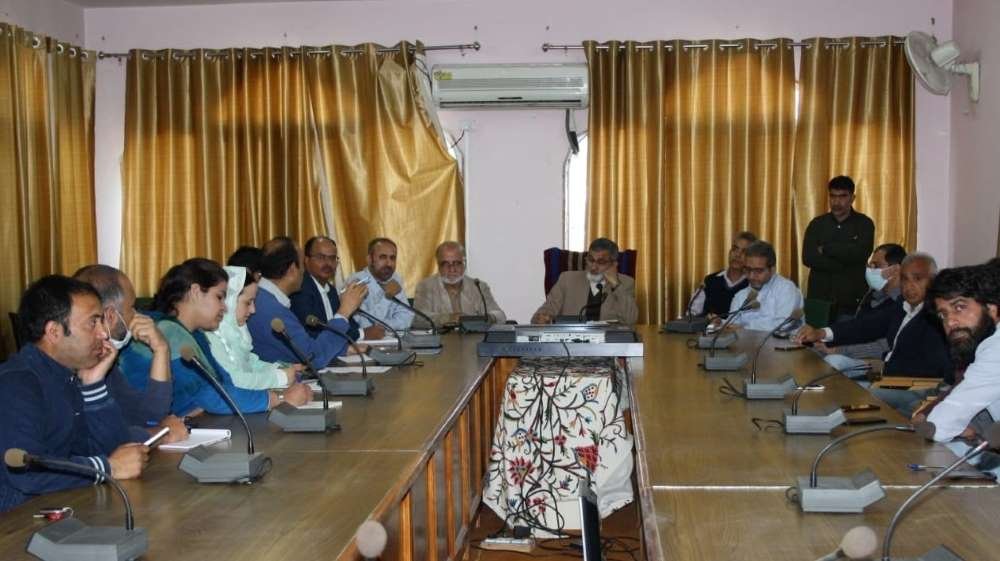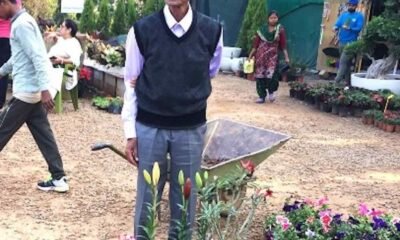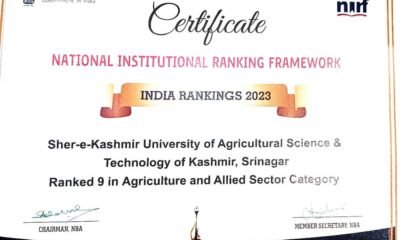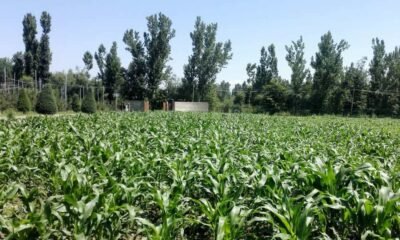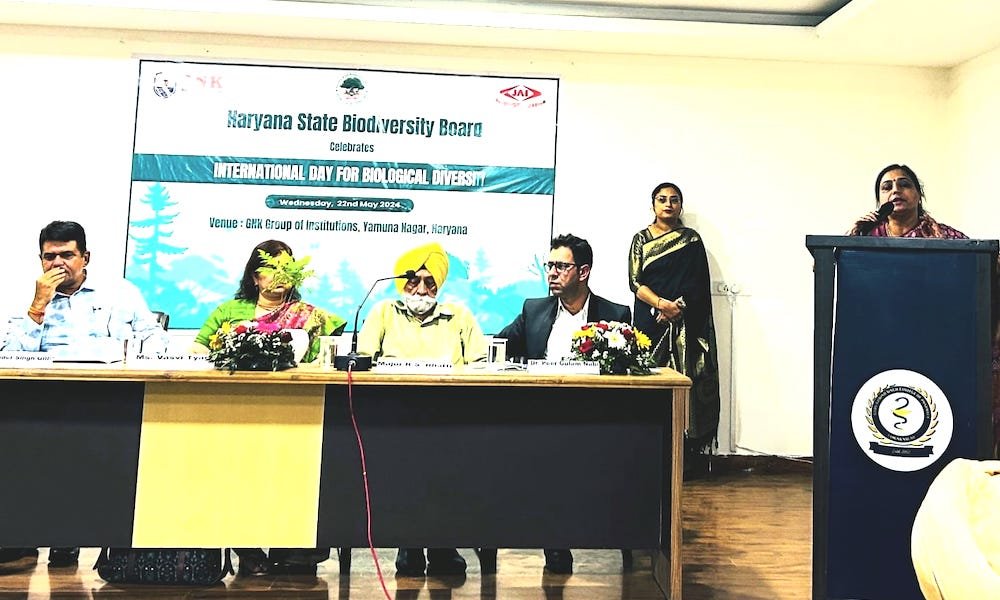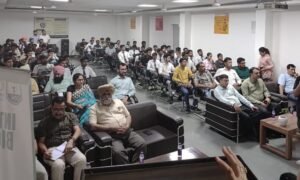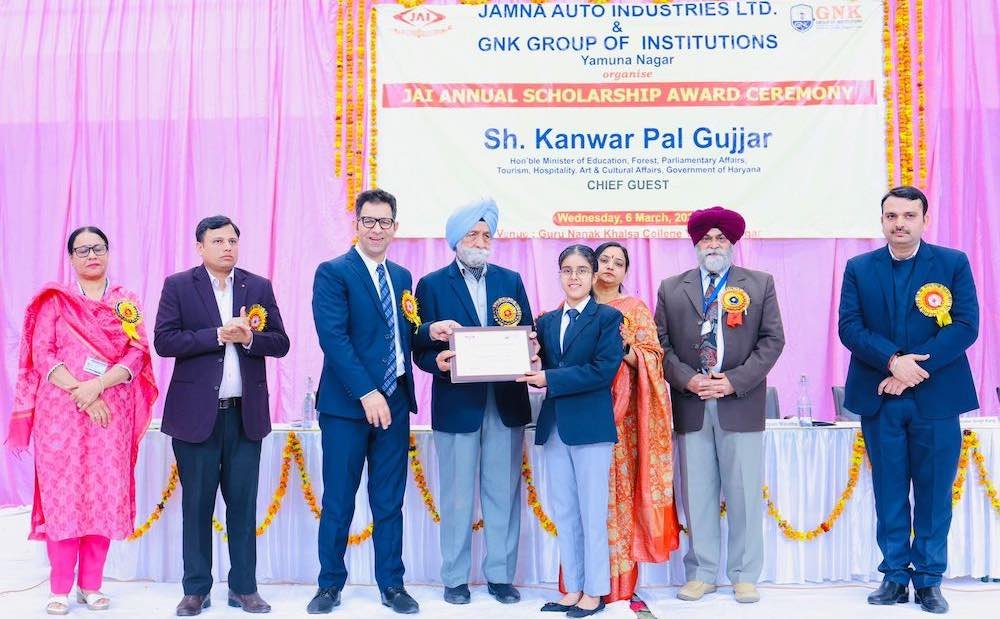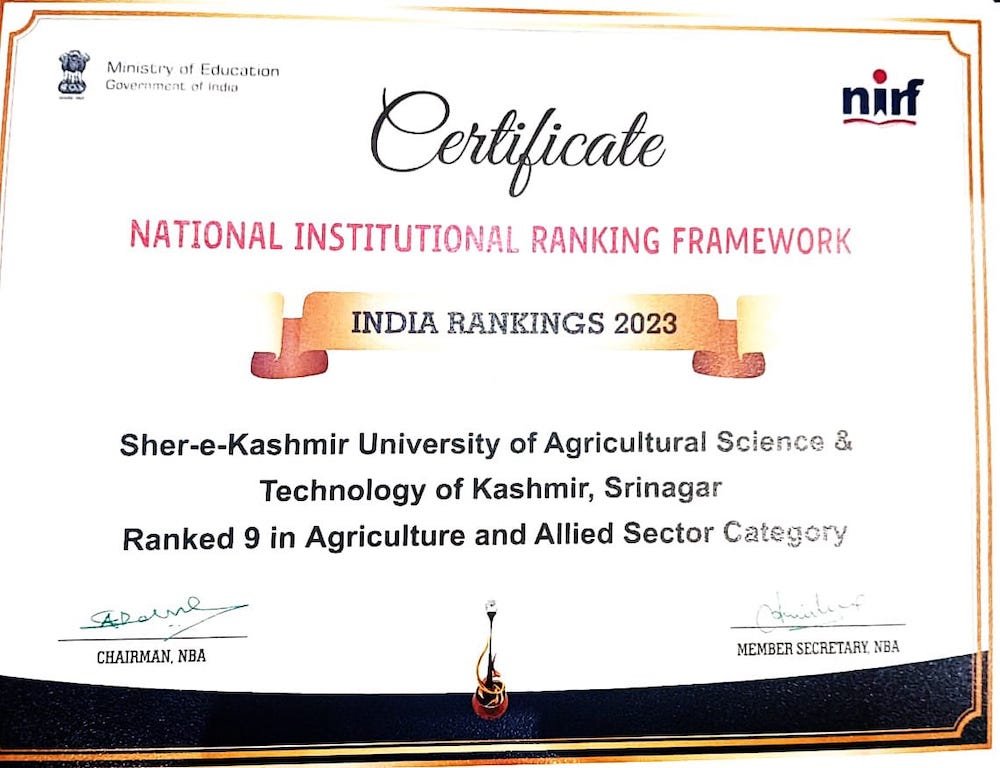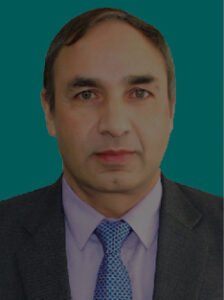2-day event to be held jointly with KU, IIT Kanpur
Srinagar, April 26: Sher-e-Kashmir University of Agricultural Sciences and Technology of Kashmir in association with the Indian Institute of Technology, Kanpur and the University of Kashmir is organising a two-day international conference on ‘Recent Advances in Biomedical Sciences and Regenerative Medicine (RABSRM 2022) on May 6&7.
The conference is being organised as part of the Scheme for Promotion of Academic and Research Collaboration (SPARC) programme, Ministry of Education (MoE), Government of India, that aims at improving the research ecosystem of India’s higher educational institutions. Department of Science and Technology, GoI & World Bank-ICAR funded National Agricultural Higher Education Project for the institutional development of SKUAST-K are also supporting the event.
Department of Biological Sciences and Bioengineering, IIT Kanpur; Division of Animal Biotechnology, SKUAST-K; and Centre for Interdisciplinary Research and Innovations, KU are jointly organising the event to be held at SKUAST-K, Shalimar campus and KU campus, Hazratbal on May 6&7 respectively.
To review the preparations for the international conference, a meeting was held at SKUAST-K under the chairmanship of Director Research, Sarfaraz Ahmad Wani and Dean Faculty of Veterinary Sciences, MT Banday in which scientists, faculty members and organisers of the conference participated.
The mega-conference is being held under the patronage of VC KU Prof Talat Ahmad and VC SKUAST-K Prof Nazir Ahamd Ganai. Prof Ganai, in his message, highlighted the importance of the conference in the present scientific era and hoped that it will provide an opportunity to discuss and deliberate on the issues shared across related fields concerning the improvement in life and working of mankind.
The RABSRM 2022 conference aims to bring together experts, researchers, young scientists and academicians from around the world to disseminate knowledge from interdisciplinary backgrounds. The knowledge provided by the eminent speakers and researchers will help to foster the research culture in the area of biomedical sciences and regenerative medicine at the universities of Jammu and Kashmir and around the country. The conference will provide an opportunity to discuss recent developments in biomedical research in health and diseases and foster future directions in drug discovery and therapeutic interventions. The themes of the conference include Bioengineering, Regenerative Medicine, Cancer Biology, Drug Design and Delivery, Vaccine Biology, Tissue Engineering, Biomaterials, Molecular Therapeutics, Animal Biotechnology, Stem Cell Gene Therapy & Biomarkers.
The conference solicits contributions of abstracts for oral/poster presentations that address themes and topics of the conference. Participants are required to submit their research abstracts online. Students/Postdocs/Faculties can submit abstracts describing original and unpublished results in all the areas of Biomedical Science and Medicine and are invited for the presentation at the conference after the acceptance. The template of the abstract can be found on the website: www.rabsrm.org. Among the leading National and International scientists participating in the two days event include the names of Jukka Seppälä from Aalto University, Finland, Andreas Nüssler from Univesity of Tuebingen, Germany, Jouni Partenan Aalto University, Finland and Hanna Isaksson from Lund University, Sweden as Key International Invited Speakers for the event.
The event will be one of its rear kind in this part of the world where the professionals across diverse disciplines will be deliberating on the theme interrelated across all the steams of concern. The event is expected to host renowned professionals from various national and international organisations for the two days here at Srinagar.

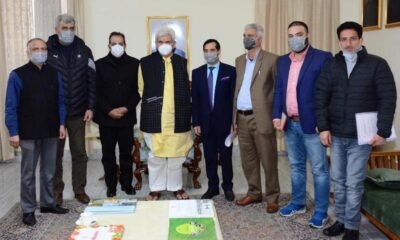

 Industry4 years ago
Industry4 years ago


 Economy2 years ago
Economy2 years ago
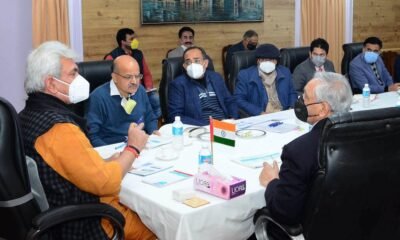

 Energy4 years ago
Energy4 years ago
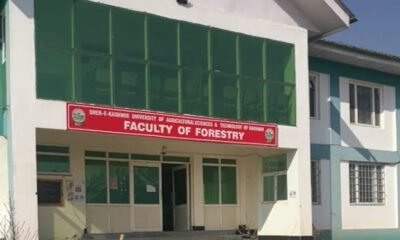

 Infra4 years ago
Infra4 years ago
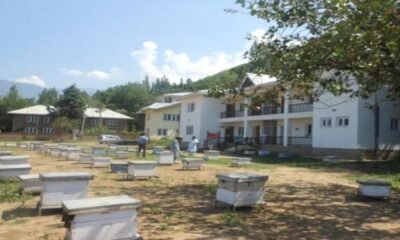

 AgriBiz4 years ago
AgriBiz4 years ago
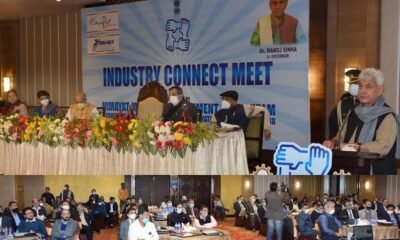

 Jobs5 years ago
Jobs5 years ago
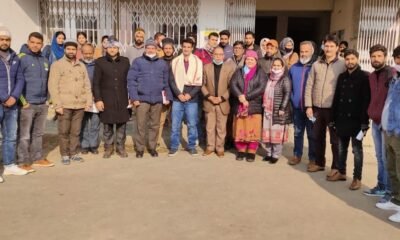

 Careers5 years ago
Careers5 years ago
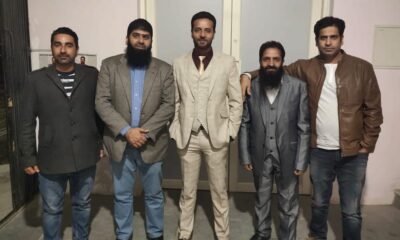

 Industry5 years ago
Industry5 years ago
